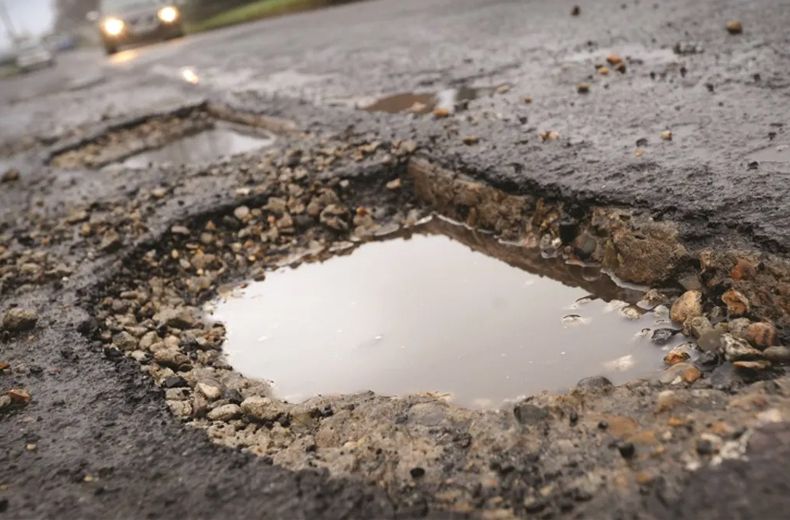While overall motor traffic volumes were down by as much 60% in the second quarter of 2020 according to government data, pothole-related call-outs during this period still made up 1.1% of all breakdowns attended by the RAC1 – the same proportion as were attended in the second quarter of 2019, perhaps indicating that road surface quality has not significantly improved.
In contrast to the first quarter of the year when RAC patrols went to the aid of 3,426 drivers who suffered damaged shock absorbers, broken suspension springs or distorted wheels (equal to 1.6% of all breakdowns), the drop in the number of pothole breakdowns between April and June is, however, significant.
RAC head of roads policy Nicholas Lyes said: “On the surface, these statistics appear encouraging because they make it seem as though the quality of our roads hasn’t worsened, but when you consider how few vehicles were on the road, they are a real cause for concern.
“We would have hoped to have seen a far bigger drop in the share of pothole-related breakdowns than we would do normally at this time of year, but instead it was just the same as usual.”
The RAC’s Pothole Index2, which is probably the most accurate long-term indicator of the health of the UK’s roads available, suggests the overall standard of the roads improved very slightly in Q2 2020 with the Index reducing from 1.65 to 1.59, down from 2.04 in the same period last year – the lowest since Q1 2008, the point at which the state of the UK’s roads began to grow steadily worse. This means drivers are now 1.5 times more likely to suffer a pothole breakdown than in 2006, when the RAC first started collecting data.
The worst time for potholes – or ‘peak pothole’ – occurred in Q1 2010 when drivers were 3.5 times more likely to break down as a result of pothole-related damage than they were back in 2006. At this time pothole-related call-outs accounted for 1.9% of the RAC’s entire fault mix – a percentage which was topped in Q1 2017 with a figure of 2.7%, also making it one of the worst times for encountering potholes on the UK’s roads.

RAC sale – up to 33% off*
• Roadside cover from £5.29 a month†
• We get to most breakdowns in 60 mins or less
• Our patrols fix 4/5 breakdowns on the spot

Nicholas Lyes continued: “Looking at our breakdown data in regard to pothole damage the long-term trend is clearly down which is good news for everyone who uses the roads.
“But we were very surprised by how many of these call-outs we dealt with during lockdown considering the vast majority of our work in this period was helping motorists with flat batteries at home as a result of vehicles being used so little.
“Those who did need our assistance away from home between April and June must have been very annoyed that their vehicle had been unlucky enough to have fallen victim to a pothole, particularly as many local authorities took advantage of the quieter roads during lockdown to repair poor road surfaces.
“With council budgets under significant pressure, it is important that our local roads are not left behind as the UK’s economic recovery will depend on high quality infrastructure. This is why we want to see councils given the same certainty of funding for road maintenance and improvement as major roads in England and Wales have through the National Roads Fund which ring-fences money from car tax – vehicle excise duty – for that purpose.
“This could easily be achieved by putting aside 2p from the existing 58p a litre duty on the sale of petrol and diesel. Over five years this would generate nearly £5bn of additional funds which will help bring our local roads back to a fit-for-purpose state.”
To report a pothole, or to find out if you suffer from damage from one and wonder if you can claim for compensation, visit the RAC’s pothole online guide. The RAC has also published a guide on looking after cars during the pandemic.
This story was originally published here on the RAC Media Centre.
2 The RAC Pothole Index is a 12-month rolling measure of the share of pothole fault breakdowns compared to 2006, corrected for seasonal weather effects and improving longer term vehicle reliability Data has been collected by the RAC since 2006. Data excludes punctures.
Get 30 driving tips that will save you money
Running a car isn’t cheap, but there are some easy things you can do to keep your costs down. Get these tips and more useful driving articles sent straight to your inbox now.
















